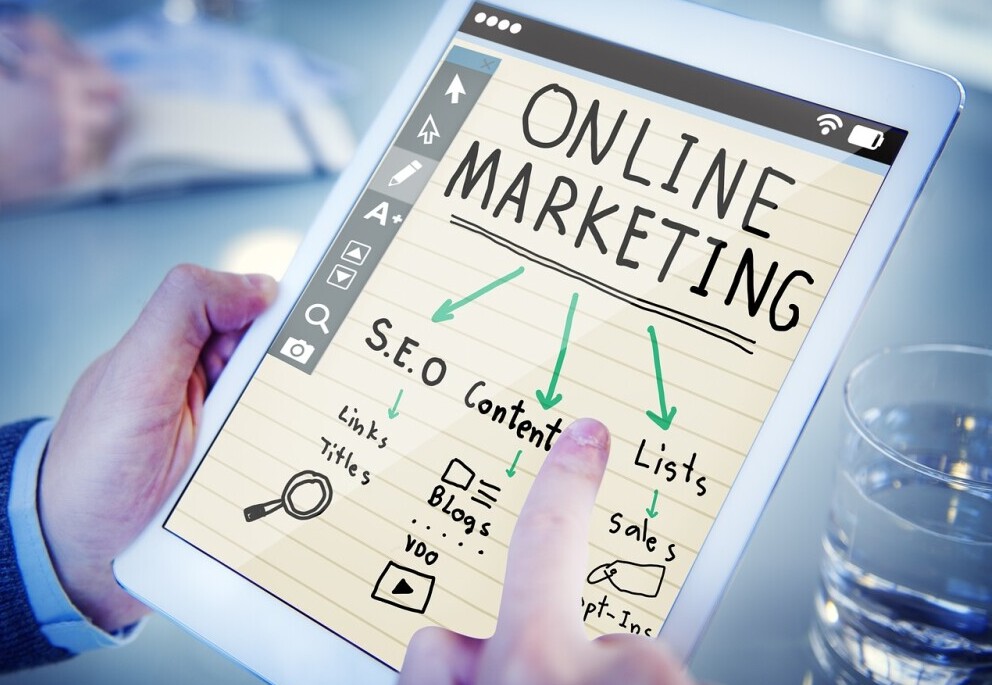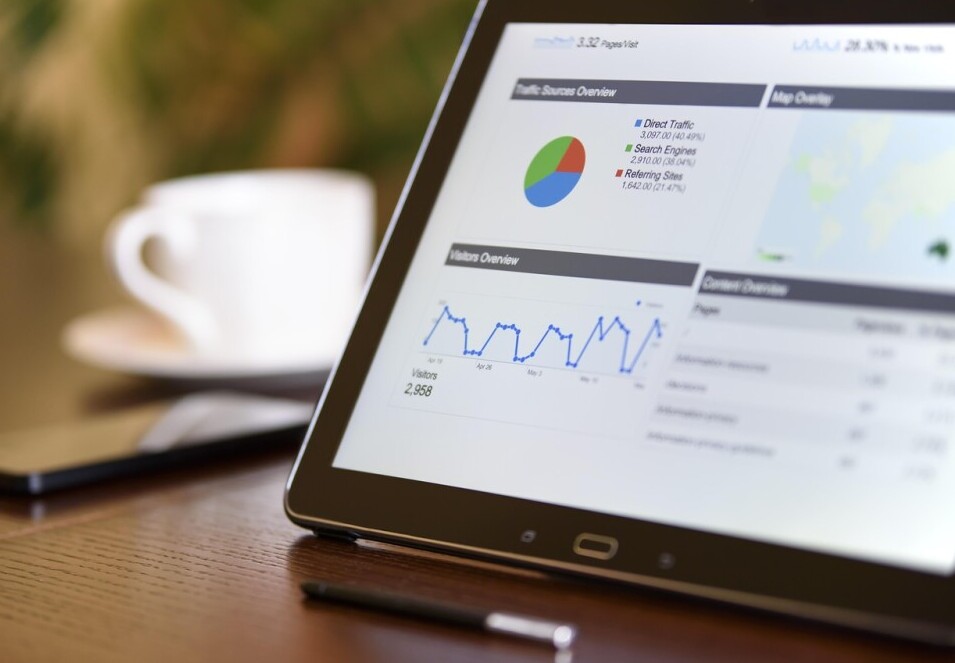Digital marketing opens up a world of opportunities for anyone looking to establish or grow their online presence. Beginners Guide to Digital Marketing is intended to help newcomers understand what this field is all about, why it matters so much in today’s online world, and how to start applying these strategies no matter if you are an aspiring entrepreneur, a small business owner, or simply curious about the digital realm.
What is Digital Marketing?
Digital marketing refers to promoting products or services through online channels. It involves a range of activities that connect businesses with audiences via search engines, social media, email, and other websites. This approach has evolved over time from simple banner ads to a sophisticated mix of strategies that allow for precise targeting, cost-effective campaigns, and in-depth analytics of customer behaviors.
Unlike traditional marketing, which relies on physical media such as newspapers, radio, or TV, digital marketing uses the connectivity of the internet. With digital marketing, every campaign can be measured, adjusted, and optimized in real time. This ability to track performance is especially valuable for small business owners and beginners who need to make every dollar count.
The benefits include reaching a larger audience at a fraction of the cost, more accurate targeting to find the right customers, and the ability to quickly see what works. If you’re wondering what digital marketing is really about, think of it as a toolkit that empowers you to connect with potential customers where they spend most of their time: online.

The Core Pillars of Digital Marketing
Search Engine Optimization (SEO)
SEO is the art and science of improving a website’s visibility on search engines like Google. For beginners, understanding that SEO is not a one-time effort is key – it involves on-page activities such as optimizing content and meta tags and off-page efforts like building backlinks. Search engine optimization matters because the higher your website ranks, the more organic traffic you attract.
Content Marketing
Content marketing focuses on creating valuable and relevant content that engages an audience. This can be in the form of blog posts, videos, infographics, or podcasts. The goal is to educate, entertain, or inspire while subtly promoting your brand. Good storytelling meets user intent, making content both appealing and useful for your target audience.
For beginners, establishing a content strategy means finding topics that truly resonate with your target market. It is about creating a plan that outlines what content to produce, when to release it, and how to promote it effectively.
Social Media Marketing (SMM)
Social media marketing is all about using platforms like Facebook, Instagram, LinkedIn, and TikTok to get involved with your audience. It involves both organic tactics such as sharing posts and stories and paid advertising to reach specific groups of people. The organic aspect is centered on building relationships and community engagement. In contrast, the paid arena is useful if you want to accelerate your reach and target particular demographics.
Email Marketing
Email marketing remains one of the most effective ways to stay in touch with your audience. It focuses on building and segmenting email lists to share newsletters, promotions, or automated content flows. For beginners, learning how to craft engaging emails and send them at just the right time can make a significant difference. Email marketing is highly valued because it provides a direct line to potential customers.
Pay-Per-Click Advertising (PPC)
PPC advertising allows you to display ads on search engines and social media platforms while only paying when someone clicks on the ad. This method offers immediate visibility and precise control over your spending. With PPC, beginners can set a small budget to test what works and monitor return on investment (ROI) carefully.
PPC is effective because it offers the immediate feedback needed to make changes on the fly. Using platforms like Google Ads and Facebook Ads, you can quickly test different marketing messages and refine your strategies based on actual performance data.
We have written a comprehensive article on the pillars of digital marketing, you can read it here.

Best Tools for Digital Marketing
Every digital marketer benefits from having the right set of tools. There are several digital marketing tools for beginners, available to help track performance, create engaging content, and manage campaigns efficiently. Beginners should consider using the following essential tools for digital marketing;
Attribution Tools For Digital Marketing
-
Google Analytics – Tracks user behavior, conversions, and traffic sources across your website.
-
Google Search Console – Monitors site performance in search results, indexing, and keyword visibility.
Content Creation Tools For Digital Marketing
-
Grammarly – Enhances grammar, tone, and readability for written content.
-
Jasper (AI) – AI writing assistant for long-form blog posts, ads, and marketing copy.
-
SurferSEO – Helps optimize content structure and keyword density for higher rankings.
Best SEO Tools for Digital Marketing
-
SEMrush – All-in-one SEO suite for keyword research, competitor analysis, and backlink tracking.
-
Ahrefs – Advanced tool for SEO audits, backlink data, and keyword rankings.
-
Moz – Offers beginner-friendly SEO tools with page optimization and link tracking.
-
Ubersuggest – Freemium tool for keyword ideas, traffic estimates, and site audits.
Email Marketing Tools For Digital Marketing
-
Mailchimp – Simplified email marketing platform with automation, analytics, and templates.
-
Kit (Shopify) – AI assistant for Shopify users to manage marketing and email campaigns.
Social scheduling tools For Digital Marketing
- Buffer – User-friendly social media scheduling and engagement tool.
- Hootsuite – Robust platform for managing multiple social accounts, scheduling, and reporting.
Graphic design Tools For Digital Marketing
-
Canva – Easy-to-use design tool for creating social posts, infographics, ads, and more.
-
Adobe Express – Quick design platform with templates and branding tools.
Best Free AI Tools for Digital Marketing
-
ChatGPT – AI assistant for writing, planning, and ideation.
-
Copy.ai – Generates marketing copy and product descriptions using AI.
-
Pictory – Converts text and articles into engaging videos using AI.
-
Lumen5 – AI video maker for social media and content repurposing.
-
Looka – AI logo and brand kit generator for digital businesses.
Using these tools can greatly simplify your marketing process, allowing you to focus more on your overall strategy and creative execution, even as a beginner still finding your footing. Don’t sweat it, read a comprehensive guide on the best tools for digital marketing here.
How to Get Started in Digital Marketing (Step-by-Step)
Starting in digital marketing might seem overwhelming at first, but breaking the process into manageable steps makes it much more approachable. The first step involves identifying your niche and defining your audience. Knowing who you intend to reach plays a crucial role in shaping your overall approach.
After you have a clear idea of your target market, establishing an online presence is key. This means creating a professional website and setting up social media profiles that clearly reflect your brand’s personality. Your website does not need to be overly complex; a simple, clean design that communicates your unique value proposition is often all that is needed.
Next, begin learning and testing various digital marketing strategies. Jump into SEO, content marketing, and social media tactics. Experiment with small budgets for PPC campaigns to see which strategies resonate best with your audience. As you gather performance data, consistently monitor your progress and adjust your tactics accordingly.
Many digital marketers recommend an iterative process: try new methods, measure performance, and continually optimize your approach based on tangible results. Even small, consistent improvements can have a significant cumulative impact over time.
If you are wondering how to start in digital marketing or looking for a clear step-by-step guide, remember the key is to start small, keep learning, and build strategies that work specifically for your audience and goals.

Free & Paid Courses for Beginners
Education forms the cornerstone of success in digital marketing. Fortunately, there are plenty of free and affordable courses available online that cater specifically to beginners. Platforms like Google Digital Garage offer accessible modules on a wide range of topics related to digital marketing.
Other educational platforms, such as HubSpot Academy, provide courses that cover everything from inbound marketing to effective social media strategies. These courses are designed to be very beginner-friendly and often come with certifications that can help boost your credentials as you continue to progress. There are also paid courses, such as those offered by CourseAscend, which provide deeper insights and personalized coaching that many find helpful after grasping the basics.
Certifications from these courses not only validate your understanding of digital marketing fundamentals but also enable you to stand out to potential employers or clients. In today’s competitive landscape, continuous learning is really important to keep up with rapidly changing digital trends and technologies.
Common Mistakes Beginners Make (And How to Avoid Them)
Even with the best intentions, beginners in digital marketing can often fall into common traps. One frequent mistake is chasing popular trends without developing a solid strategy. Although it might be tempting to jump on the latest marketing innovation, doing so without a clear plan may dilute your brand message and overall effectiveness.
Another common pitfall is ignoring the importance of data and analytics. Many new digital marketers focus solely on the creative aspects of campaigns without paying sufficient attention to performance metrics. In digital marketing, knowing what works and what does not is really important for making informed decisions that drive continuous improvement.
Failing to build an email list early on is another error many beginners make. Email marketing remains one of the best ways to connect with your audience on a personal level. By postponing the development of an email strategy, many miss out on the opportunity to maintain a direct line of communication with prospective customers.
Finally, giving up too soon when immediate results are not seen can be detrimental. Digital marketing requires time, experimentation, and persistence. Embracing a long-term mindset and learning from each campaign can help you overcome early challenges and achieve sustainable success.
Success Stories and Inspiration
It is always encouraging to hear success stories from individuals who began with little to no experience in digital marketing. Many entrepreneurs started with small projects, educated themselves through online courses, and gradually built up both their skills and their reputation.
For example, consider the story of a small business owner who started with a modest blog and simple social media posts. By incorporating SEO strategies, crafting engaging content, and consistently experimenting with different digital channels, this entrepreneur grew their online presence and eventually saw significant revenue growth. His progression from trial and error to a profitable digital marketing strategy serves as an inspiration for many beginners.
Other notable examples include freelancers who built strong personal brands through persistent online efforts and affiliate marketers who turned their recommendations into reliable income streams. The common thread in these stories is persistence, a willingness to learn, and the ability to adapt in a rapidly changing digital landscape.

Future of Digital Marketing
The future of digital marketing is being reshaped by AI, immersive tech, and ethical transparency. Marketers now use smart tools to automate decisions, personalize content, and predict customer behavior. Voice search, AR, and VR are enhancing how users engage with brands—making experiences more interactive and tailored. At the same time, trust and data privacy have become essential, requiring marketers to comply with strict ethical standards. Success lies in adopting the right innovations—not all trends—while staying focused on value and user experience. Brands that thrive will be those that are data-driven, transparent, and deeply connected to their audience.If you’re curious to explore more about where digital marketing is headed, check out the full article here.
Frequently Asked Questions
What is the best way to learn digital marketing?
There isn’t a one-size-fits-all approach. Many beginners find that taking free courses, reading blogs, and experimenting with small campaigns works best. The key is to remain consistent and persistent.
How long does it take to become proficient in digital marketing?
The timeline varies based on your background and effort. While basic concepts can be grasped in a few months, becoming proficient often takes a year or more of hands-on practice and continuous learning.
Can I succeed in digital marketing without a degree?
Absolutely. Many successful digital marketers are self-taught. The most important part is to keep learning, apply your knowledge practically, and build a portfolio that showcases your skills.
How do digital marketers make money?
Digital marketers earn through various avenues including freelance projects, ad campaigns, affiliate marketing, consulting, and employment by organizations. The diversity in income streams makes this field very versatile.
Why Now Is the Best Time to Learn Digital Marketing
The world of digital marketing is growing rapidly. There are opportunities for side hustles, freelancing gigs, and even full-time careers. The demand for digital marketing professionals continues to rise as more businesses aim to establish their online presence.
This field is constantly refreshed with new trends and tools, offering fresh challenges and opportunities for innovation. With minimal initial investment and numerous free resources available, beginning your foray into digital marketing now ensures you stay ahead in a competitive market.
Stepping into digital marketing today is like exploring uncharted territory as the economy increasingly shifts toward online business. You have the chance to develop skills that will serve you in many roles—whether as a side hustle or a full-time career. Take that first step: enroll in a basic online course, start building your online presence, and experiment with different digital strategies. Every effort you make today is an investment in your future.



